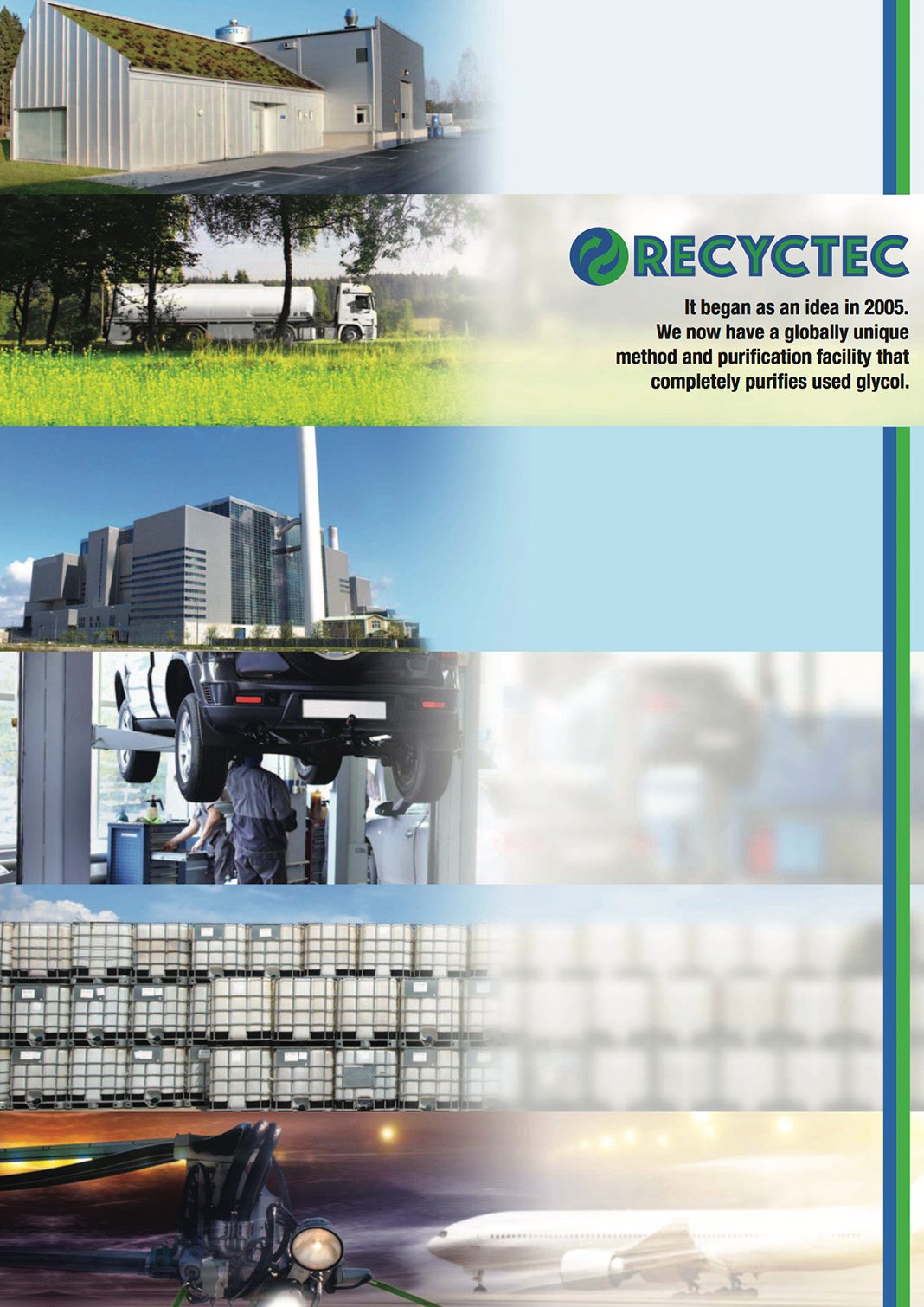Recyctec began in 2005 as an idea to develop a globally unique method for the purification of used glycol.
The process for the purification of used glycol returns the substance to its original condition in an eco-friendly way, and with limited waste, making it an environmentally viable solution for glycol management.
The method was first developed through testing in around 2005, and has since been further refined to be operable at a methodical and controlled rate, while always ensuring a stable foundation. The company now has a production facility in Jönköping, Sweden, through which the purification of used glycol is undertaken at an industrial scale, to allow it to be reused over and over again.
Why should glycol be purified?
Purifying recovered glycol means it can be infinitely reused, and by employing this process Recyctec’s work has resulted in many changes that have benefited our common environment. Glycol has a number of applications in a variety of sectors, and is used to:
- Ensure water does not freeze;
- Prevent corrosion in pipes;
- Lubricate water pumps;
- De-ice aircraft and other vehicles;
- Reduce surface tension; and
- Raise boiling temperature.
In Sweden, glycol is typically sent to combustion sites, or to wastewater treatment plants to be cleaned, but this requires a significant expenditure of energy and can be very expensive. Further, wastewater treatment plants and combustion sites come with an additional environmental cost.
What does Recyctec do?
This booklet details how Recyctec’s efforts contribute to a reduction in waste in line with the EU’s waste hierarchy and priorities in this area, including how the process ties into Europe’s ambitions for a revised Circular Economy Package.
It then explains many of the most common applications of glycol and describes how the purification of used glycol is the most viable method for reducing waste in this sector, allowing glycol to be infinitely reused and ‘closing the resource cycle’ of this commonly used chemical.


